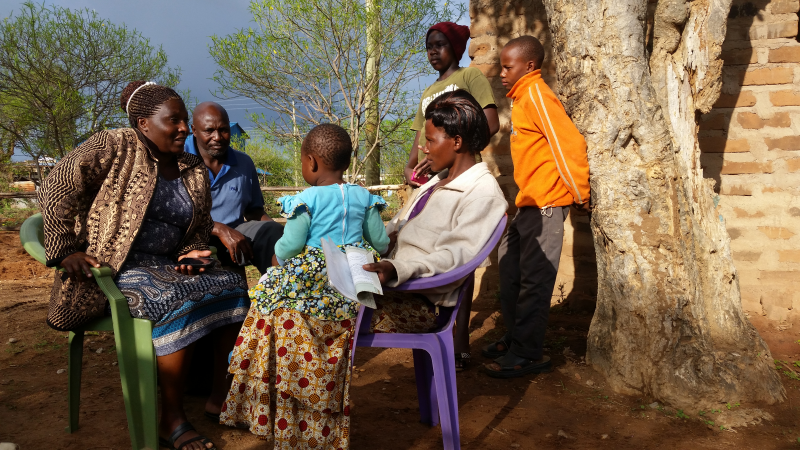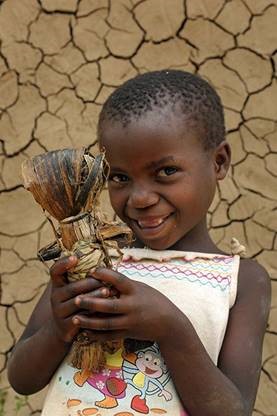Evidence-based interventions to strengthen mental health of children
As the COVID-19 pandemic continues, access to mental health services in developing countries is more important than ever. Children are overlooked even though investing in child development is an investment for life. To strengthen resilience, TNO develops innovative, affordable, and easy to implement evidence-based interventions for children and caretakers. Because of COVID-19 innovative digital solutions and do-it-yourself methods are introduced.

Around 80% of people with severe mental disorders receive no treatment in middle- and low-income countries (WHO, Mental Health Action Plan 2013-2020). This number is even higher among children because of the belief that they are not affected by traumatic experiences. Psychosocial support for children is seldom prioritized while it is needed more than ever because of the COVID-19 pandemic.
MENTAL HEALTH AND CHILDREN’S DEVELOPMENT
The impact of traumatic experiences on the development of children is highly underestimated. Trauma that is not treated results in delay of the healthy development of body and brain. Later in their lives, these children are at higher risk of depression, behavioral problems, physical health problems and risk behavior such as addiction. They may face disproportionate barriers in attending school and finding employment, because stigma surrounding mental illness is widely endorsed in developing countries. If no investments are made in the mental health of these children, it will affect them throughout the course of their life.
STRENGTHENING CHILDREN’S RESILIENCE

Remy Vink, Researcher Child Maltreatment of TNO mentioned “Investing in children’s mental health is an investment for life. That’s why TNO develops and implements evidence-based interventions aimed at strengthening the resilience of children who need it most”. In South-Sudanese communities, TNO and Help a Child are implementing the Build-your-own Buddy intervention that supports children and caretakers in coping with psychosocial trauma. Many of these children have lost family members and were forced to flee from their homes. The current pandemic increases stress among their parents and caretakers, which in turn affects the well-being of children.
DIGITAL INNOVATIONS
To ensure the provision of health services in times of COVID-19 restrictions, there is a momentum to invest in digital and do-it-yourself innovations for low-resource settings.
Roelinde Bakker, Business Developer Child Health of TNO explains: “TNO develops The Digital Parent Support Services to provide insights and support to the regions that need it most. TNO uses its child health expertise, technological knowhow and smart algorithms to ensure that data is available to healthcare workers when it's needed through smart applications and platforms. It gives healthcare providers the tools to offer accurate advice with fewer resources.
It starts with the modular interventions and tools TNO already has. Like the D-score a simple and robust scale of child development combining physical, emotional and communication indicators to detect developmental delay in infancy that was developed together with the WHO and the Bill & Melinda Gates Foundation.”
TNO also develops a digital do-it-yourself version of the D-score to empower parents to keep monitoring their child’s development when access to health workers is limited. Together with local partners TNO designs interactive mobile applications that offers parents advice or healthcare worker support.
PARTNERSHIPS FOR INNOVATION
In many regions COVID-19 leads to more poverty, hunger, violence and destabilization. During and after COVID-19, TNO is committed to improve children’s health and well-being in countries all over the world. By partnering with local and international NGO’s, healthcare professionals, investors and caretakers, we adapt evidence-based interventions to the social, geographic and cultural contexts of a region.
